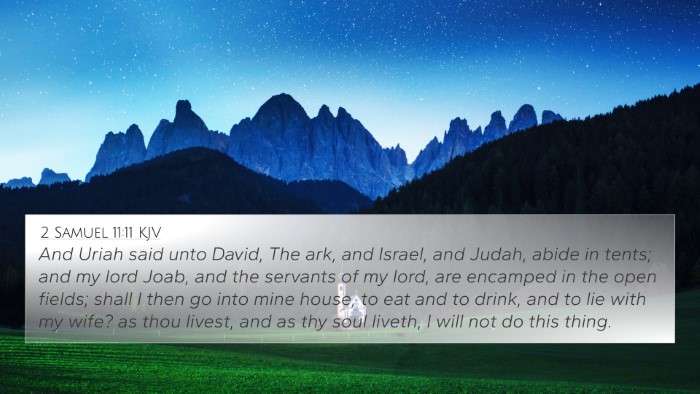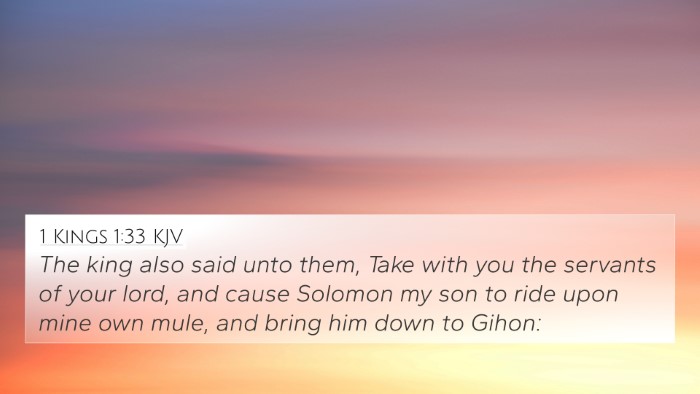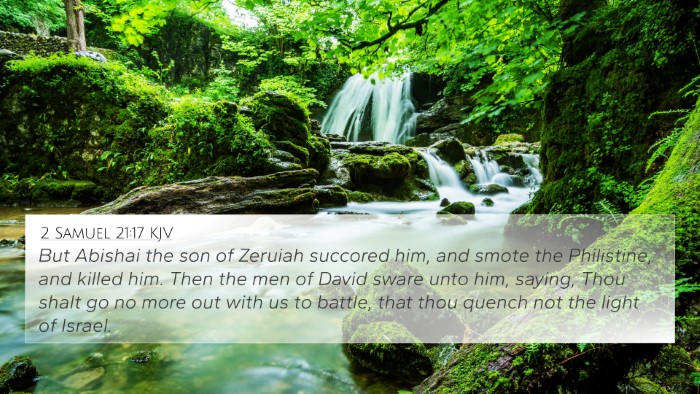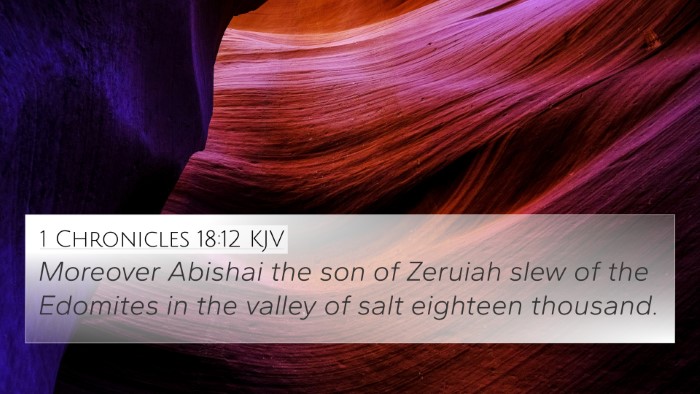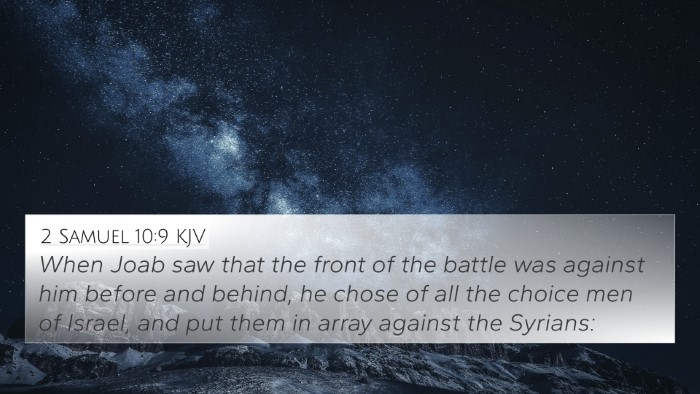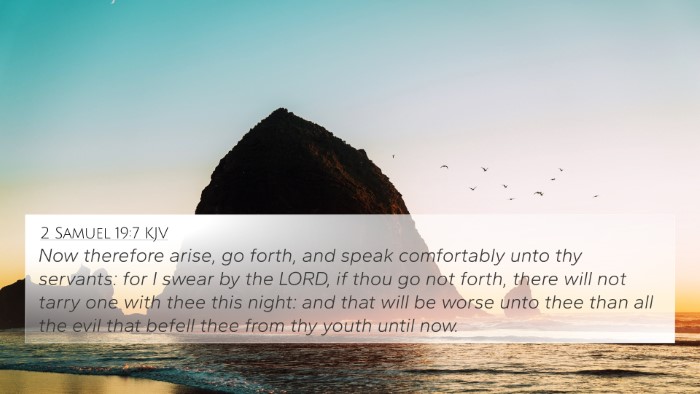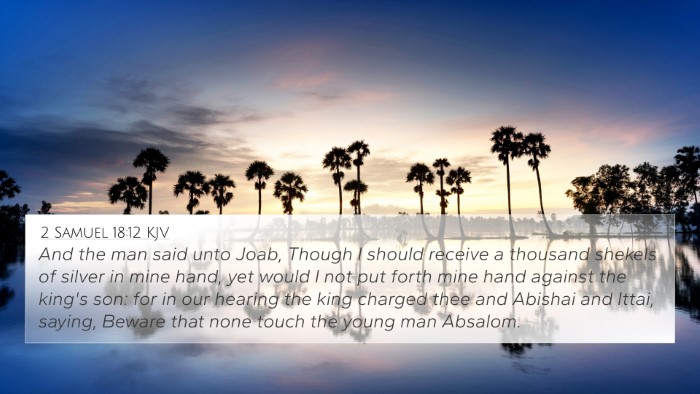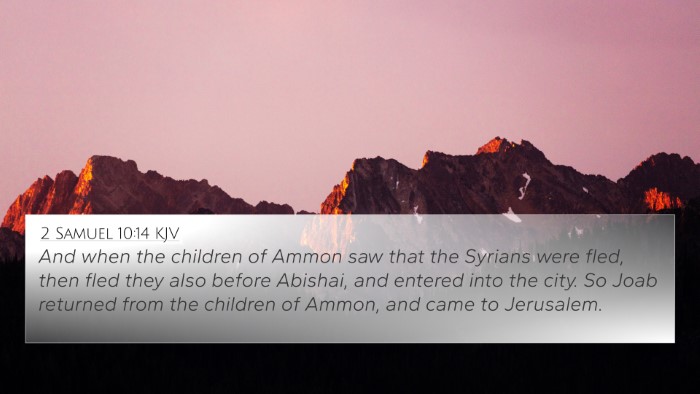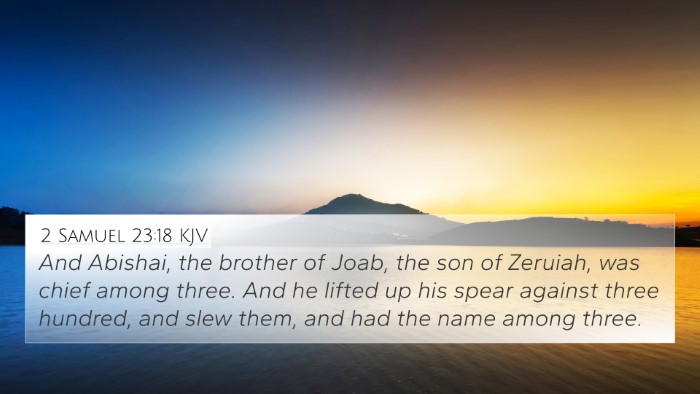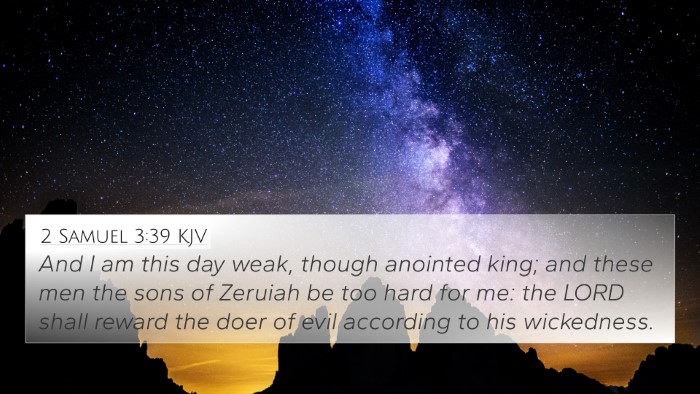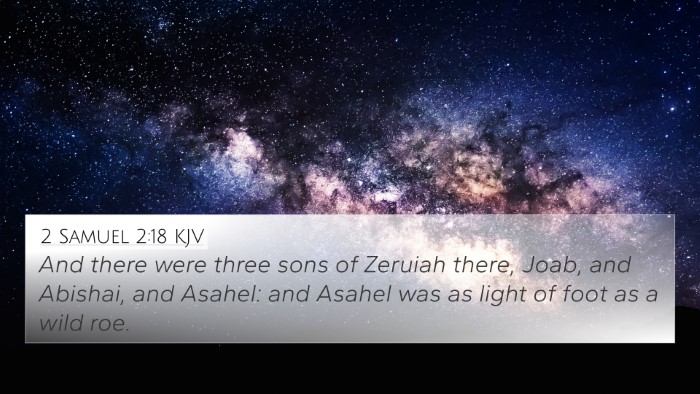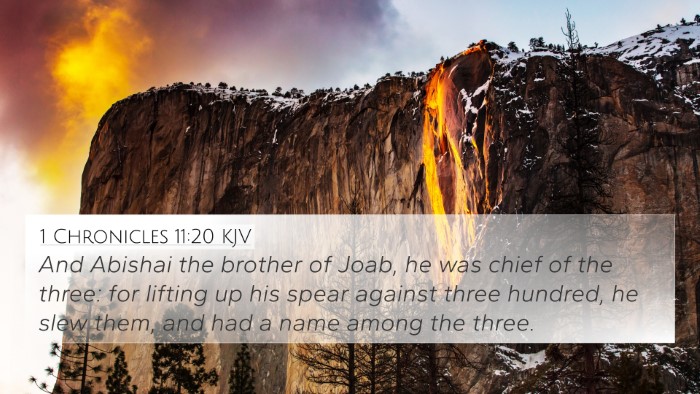Understanding 2 Samuel 20:6
Bible Verse: 2 Samuel 20:6
In this verse, the context revolves around the consequences following Absalom's rebellion and the subsequent challenges faced by David's reign over Israel. The verse states:
“And David said to Abishai, Now shall Sheba the son of Bichri do us more harm than Absalom. Take thou thy Lord's servants, and pursue after him, lest he get him fenced cities, and escape us.”
Verse Meaning & Insights
In understanding this verse, we can glean several insights through the lens of public domain commentaries by Matthew Henry, Albert Barnes, and Adam Clarke.
Confidence in Leadership
Albert Barnes notes that David's leadership is characterized by a proactive stance to safeguard his kingdom. The urgency in David's directive shows how crucial it is to address threats immediately. This underscores the principle of promptness in leadership, especially in the face of rebellion.
Danger of Insurrection
Matthew Henry elaborates on the dangers posed by Sheba, who represents the potential for further division within the nation. His assertion that Sheba could do them more harm than Absalom highlights the idea that sometimes smaller insurrections can pose greater threats than more significant ones, as they can lead to persistent discord.
Strategic Action
Adam Clarke emphasizes the strategic measures David insists upon. He wants Abishai and his men to pursue Sheba diligently to prevent him from finding secure cities. This can be interpreted as a lesson on the importance of taking decisive action to quell dissent before it flourishes. Clarke's insight suggests the need for vigilance and strategy in governance.
Related Biblical Insights
Bible Cross-References
- 1 Samuel 15:23 - The consequences of rebellion against authority.
- 2 Samuel 15:2-6 - The dangers of insurrection during Absalom's revolt.
- 2 Samuel 17:1-2 - The counsel given during times of conflict and rebellion.
- 2 Samuel 18:1-2 - David's strategic military organization.
- 1 Kings 1:5 - The emergence of rival claims to leadership.
- 2 Chronicles 10:16-17 - Repercussions of rebellion against a leader.
- Luke 14:31-32 - Understanding the stakes involved in conflict.
- Romans 13:1 - The divine order regarding authorities.
- James 3:16 - The origins of strife and confusion.
- Galatians 5:15 - The dangers of internal conflicts and divisions.
Lessons From 2 Samuel 20:6
By considering these interpretations and cross-references, we can draw several critical lessons:
- Vigilance: Leaders must remain vigilant against emerging threats that could destabilize their leadership.
- Proactivity: Addressing potential problems before they escalate is crucial in governance.
- Unity: The threat of division within the community or congregation can have dire consequences.
- Strategy: Carefully developed strategies are essential in handling multifaceted challenges.
- Leadership Accountability: Leaders are held accountable for addressing the threats to their authority.
Thematic Connections
The exploration of 2 Samuel 20:6 offers connections to wider themes present throughout scripture, emphasizing the nature of leadership, rebellion, and the consequences of division. Such themes are prevalent from the Old Testament into the New Testament, echoing throughout ecclesiastical governance. The narrative sets a foundation for understanding how insurrection can lead to broader consequences, encouraging comprehensive Bible cross-reference study methods to explore:
- Leadership in the Bible: A notable theme across narratives, paralleling David's leadership with that of other Biblical leaders.
- The nature of rebellion: Understanding a recurring issue in Israel's history.
- The implications of division: An insight applicable in contemporary contexts regarding unity in the church.
Cross-Referencing Biblical Texts
Utilizing tools for Bible cross-referencing enhances one's understanding of scripture. Scholars and students can engage with:
- Bible Concordance: A resource for finding related verses and themes.
- Bible Cross-Reference Guide: A method for organizing and connecting Biblical texts.
- Bible Chain References: A study approach linking scriptures together for thematic analysis.
Conclusion
In conclusion, the study of 2 Samuel 20:6 invites deeper inquiry into the Biblical narrative surrounding leadership and insurrection. Engaging with this verse through public domain commentaries enriches our understanding and offers valuable lessons on governance, unity, and the dangers of division.



